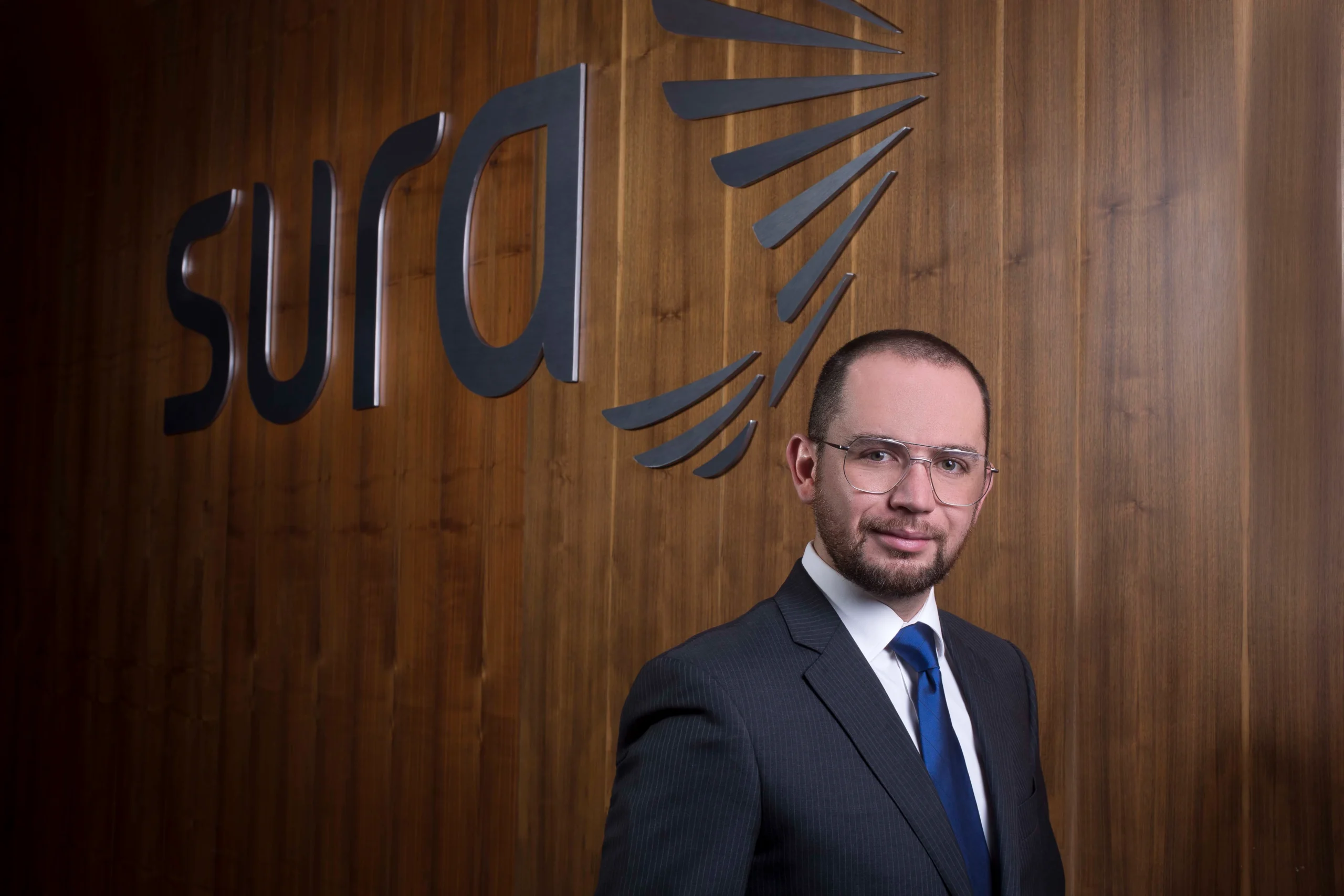Investing to address the real issues

John E. Kaye
- Published
- Banking & Finance, Home

Lonneke Roza and Karoline Heitmann underline the value of leveraging corporate resources for bold and transformative social impact
Sustainability and CSR have taken on more importance in the daily operations of companies globally. However, most of these activities to date have been closely tied to the concept of shared value and the subsequent search for the sweet spot in which business success and social impact go hand in hand. Yet, is this really the best and only way to help society? We believe not. These strategies inherently deprioritise social investments that have no clear business case (yet), independent of their societal importance. For this reason, we are now seeing a growing prioritisation of corporate social investment strategies in which social impact is the main decision-making factor. And this type of strategy is best exemplified by looking at corporate foundations.
Sustainability and socially responsible initiatives often marginalise social impact to financially interesting activities for companies. Corporate foundations, however, have social impact at their very core by choice and by design, including their fiscal and legal status. They are focused on public benefit instead of private benefit. At the same time, corporate foundations have an inherent relationship with their founding company. They may share the same name, and they may have inter-related trustees, administration and even employee secondment. But they operate independently from the company’s business interests. This enables them to leverage corporate resources such as funding, expertise, networks or time in a manner that best serves society.
Corporate foundations therefore provide a unique contribution to the UN’s Sustainable Development Goals (SDGs), making a real effort to fight the largest global challenges such as poverty, human rights and the environment. They provide social purpose organisations such as non-profits, charities and/or social enterprises with tailored financing and non-financial support.
It is true that companies have been setting up corporate foundations for years. What is changing is the role that these foundations take in companies’ overall impact strategies. For some companies, a foundation represents their overall moral conviction to give back to society, especially to the most marginalised and vulnerable. For example, Lloyds Bank Foundation aims to help Britain prosper –aligned with the purpose of the bank. This addresses the most pressing and complex social issues such as homelessness and mental health.
These issues will never be truly solved by market-based solutions. Nor are these issues of direct interest to the bank. However, they are at the core of societal well-being. For other companies, a corporate foundation is a strategic partner that can pioneer bold and transformative social solutions that may even have potential long-term business relevance. An example here is Syngenta Foundation for Sustainable Agriculture, which used expertise from the related company to develop a new and innovative farming technique for pre-commercial smallholder farmers in Africa. The foundation operates in areas that have no business value yet. However, it strengthens smallholder farmers’ overall position in the agricultural ecosystem, which is of long-term relevance to the industry in which the business operates.
Working across the board
Corporate foundations also have the unique ability to initiate and catalyse collaborative solutions for social impact. For instance, the C&A Foundation’s Fashion for Good innovation platform connects sustainable innovations in the fashion industry with manufacturers, retailers and funders. Under the traditional CSR model, businesses tend to stay away from collaborations with industry players and often feel pressured to keep sustainable and social innovations as a strategic advantage. But a corporate foundation that is run independently from the company has no need to preserve a competitive position. It can work with a variety of partners – including competitors and their respective corporate foundations – to bring innovative ideas out into the public domain.
As the global business community gains an increasing awareness that resources are finite and that unlimited growth is a myth, companies are starting to see that marginalising society is not good for business. Businesses that want to flourish in this new society must increasingly acknowledge that they are equally responsible for investing in its resiliency. They need to go beyond commercial impact strategies to embrace those that demonstrate real impact.
About the authors
Dr Lonneke Roza is Community Investment Manager at NN Group and former professor at RSM. Karoline Heitmann is Corporate Initiative Manager with European Venture Philanthropy Association.
RECENT ARTICLES
-
 Managing cross-border risks in B2B e-commerce
Managing cross-border risks in B2B e-commerce -
 J.P. Morgan launches first tokenised money market fund on public blockchain
J.P. Morgan launches first tokenised money market fund on public blockchain -
 Aberdeen agrees to take over management of £1.5bn in closed-end funds from MFS
Aberdeen agrees to take over management of £1.5bn in closed-end funds from MFS -
 Enterprise asset management market forecast to more than double by 2035
Enterprise asset management market forecast to more than double by 2035 -
 EU Chamber records highest number of entries for 2025 China Sustainable Business Awards
EU Chamber records highest number of entries for 2025 China Sustainable Business Awards -
 Inside Liechtenstein’s strategy for a tighter, more demanding financial era
Inside Liechtenstein’s strategy for a tighter, more demanding financial era -
 ‘Stability, scale and strategy’: Christoph Reich on Liechtenstein’s evolving financial centre
‘Stability, scale and strategy’: Christoph Reich on Liechtenstein’s evolving financial centre -
 Bridging tradition and transformation: Brigitte Haas on leading Liechtenstein into a new era
Bridging tradition and transformation: Brigitte Haas on leading Liechtenstein into a new era -
 Liechtenstein in the Spotlight
Liechtenstein in the Spotlight -
 Fiduciary responsibility in the balance between stability and global dynamics
Fiduciary responsibility in the balance between stability and global dynamics -
 Neue Bank’s CEO on stability, discipline and long-term private banking
Neue Bank’s CEO on stability, discipline and long-term private banking -
 Research highlights rise of 'solopreneurs' as technology reshapes small business ownership
Research highlights rise of 'solopreneurs' as technology reshapes small business ownership -
 Philipp Kieber on legacy, leadership and continuity at Interadvice Anstalt
Philipp Kieber on legacy, leadership and continuity at Interadvice Anstalt -
 Building global-ready funds: how South African managers are scaling through offshore platforms
Building global-ready funds: how South African managers are scaling through offshore platforms -
 Global billionaire wealth hits record as relocation and inheritance accelerate, UBS finds
Global billionaire wealth hits record as relocation and inheritance accelerate, UBS finds -
 Human resources at the centre of organisational transformation
Human resources at the centre of organisational transformation -
 Liechtenstein lands AAA rating again as PM hails “exceptional stability”
Liechtenstein lands AAA rating again as PM hails “exceptional stability” -
 Lusaka Securities Exchange surges ahead on reform momentum
Lusaka Securities Exchange surges ahead on reform momentum -
 PROMEA leads with ESG, technology and trust in a changing Swiss market
PROMEA leads with ESG, technology and trust in a changing Swiss market -
 Why collective action matters for pensions and the planet
Why collective action matters for pensions and the planet -
 Structuring success with Moore Stephens Jersey
Structuring success with Moore Stephens Jersey -
 PIM Capital sets new standards in cross-jurisdiction fund solutions
PIM Capital sets new standards in cross-jurisdiction fund solutions -
 Innovation, advisory and growth: Banchile Inversiones in 2024
Innovation, advisory and growth: Banchile Inversiones in 2024 -
 Digitalization, financial inclusion, and a new era of banking services: Uzbekistan’s road to WTO membership
Digitalization, financial inclusion, and a new era of banking services: Uzbekistan’s road to WTO membership -
 Fermi America secures $350m in financing led by Macquarie Group
Fermi America secures $350m in financing led by Macquarie Group



























